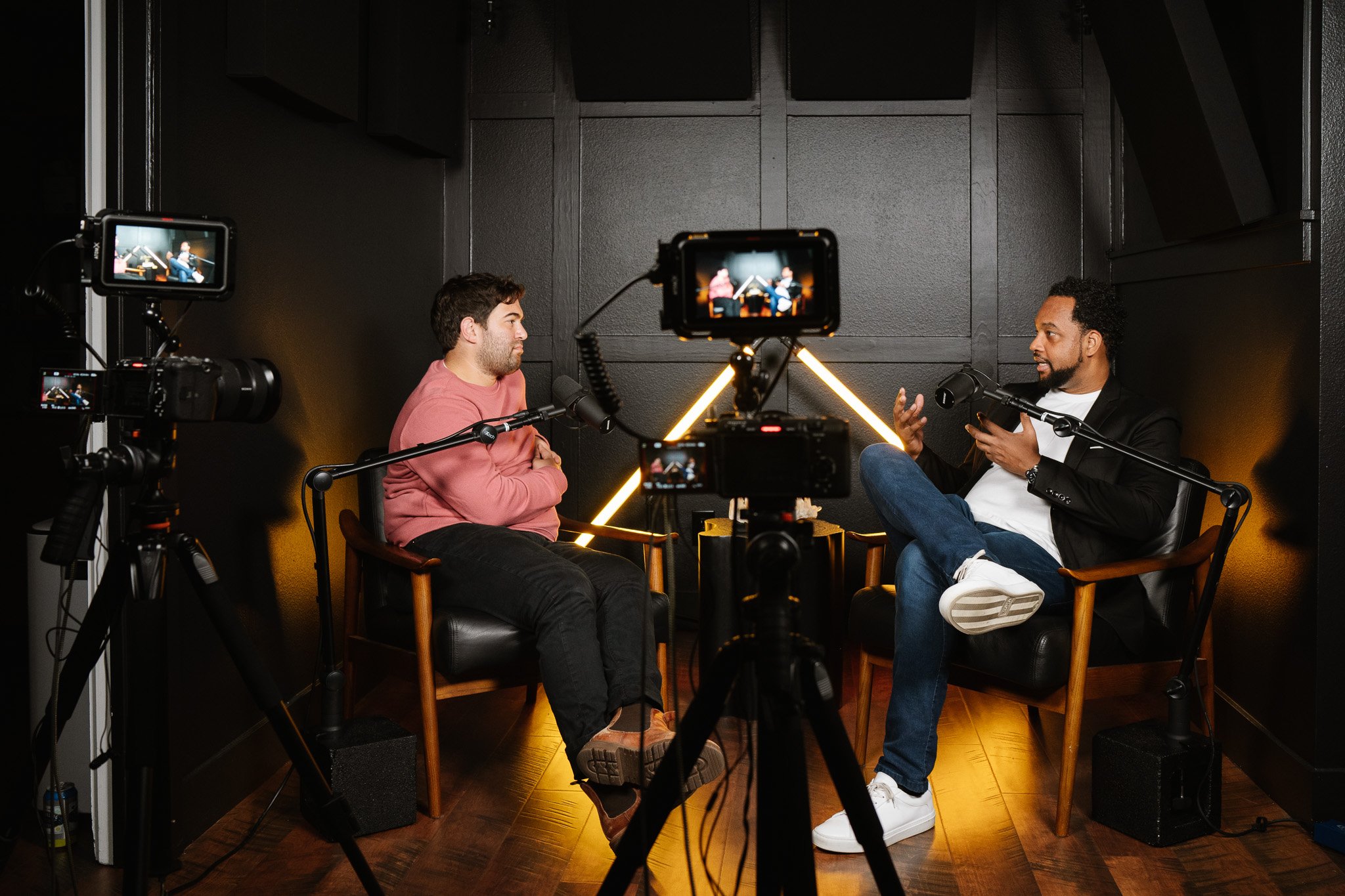Interviewing is a critical skill in both professional and personal contexts. Whether you’re conducting an interview as a recruiter, a journalist, or even for research purposes, the ability to elicit meaningful responses and build rapport with the interviewee is essential. This blog post explores various interviewing tips and techniques that will help you become more confident, effective, and insightful in your interviews.
1. Preparation: The Foundation of a Successful Interview
Preparation is the key to conducting a successful interview. Before you even sit down with your interviewee, you should have a clear understanding of your goals, the subject matter, and the person you’re interviewing.
- Research the Interviewee: Learn as much as possible about the person you’re interviewing. This includes their background, accomplishments, and any relevant work they’ve done. This knowledge will allow you to ask informed questions and demonstrate that you value their time and expertise.
- Understand the Subject Matter: If you’re interviewing someone on a specific topic, ensure you have a strong grasp of the subject. This will enable you to ask more insightful questions and engage in a deeper conversation.
- Outline Your Questions: While flexibility is important during an interview, having a list of prepared questions will keep you on track. Your questions should cover a range of topics, from general to specific, to guide the conversation and ensure you gather the information you need.
- Set the Right Tone: Decide on the tone of the interview. Is it formal or informal? Friendly or inquisitive? The tone will set the stage for the type of responses you receive.
2. Building Rapport: Establishing Trust and Comfort
Building rapport with your interviewee is crucial for creating a comfortable environment where they feel safe to share their thoughts and experiences.
- Start with Small Talk: Begin the interview with some light, non-threatening conversation. This can help to break the ice and make the interviewee feel more at ease.
- Be Empathetic: Show genuine interest in what the interviewee has to say. Listen actively and respond with empathy. Acknowledge their feelings and perspectives, which will encourage them to open up.
- Maintain Eye Contact: Eye contact is a powerful tool in building trust. It shows that you are engaged and interested in the conversation.
- Be Mindful of Body Language: Your body language should convey openness and attentiveness. Avoid crossing your arms, looking at your watch, or displaying any signs of impatience.
3. Effective Questioning Techniques: Eliciting Valuable Responses
The questions you ask and how you ask them can significantly impact the quality of the responses you receive. Here are some techniques to help you craft and deliver effective questions.
- Use Open-Ended Questions: Open-ended questions encourage the interviewee to provide more detailed and expansive answers. Instead of asking, “Did you enjoy your last job?” ask, “What did you enjoy most about your last job?”
- Avoid Leading Questions: Leading questions suggest the answer you expect or want, which can bias the interviewee’s response. For example, instead of asking, “Don’t you think this new policy is unfair?” ask, “How do you feel about the new policy?”
- Ask Probing Questions: Probing questions are follow-ups that encourage the interviewee to elaborate on their previous answer. For instance, if someone says they found a project challenging, you might ask, “Can you tell me more about the challenges you faced?”
- Silence is Golden: Don’t be afraid of pauses or moments of silence. Sometimes, a brief pause can prompt the interviewee to reflect more deeply and offer more thoughtful answers.
- Clarify When Necessary: If an answer is unclear or ambiguous, don’t hesitate to ask for clarification. This ensures that you understand the interviewee’s perspective and can provide accurate information.

4. Active Listening: Engaging with the Interviewee
Active listening is more than just hearing words; it involves fully engaging with the interviewee and understanding the underlying messages they are conveying.
- Listen More Than You Talk: The focus of the interview should be on the interviewee, not you. Avoid interrupting or dominating the conversation.
- Paraphrase and Summarize: Occasionally paraphrasing or summarizing what the interviewee has said shows that you are paying attention and helps to confirm your understanding. For example, “So, what I’m hearing is that you felt unsupported in your previous role?”
- Acknowledge Non-Verbal Cues: Pay attention to the interviewee’s body language, tone of voice, and facial expressions. These non-verbal cues can provide additional insight into their feelings and attitudes.
- Be Present: Avoid distractions during the interview. This means turning off your phone, avoiding side conversations, and focusing entirely on the interviewee.
5. Navigating Difficult Conversations: Handling Sensitive Topics
Interviews can sometimes involve difficult or sensitive topics. How you handle these situations can determine the success of the interview.
- Be Respectful: Approach sensitive topics with care and respect. Be mindful of the interviewee’s comfort level and be prepared to back off if they seem uncomfortable.
- Use a Gentle Tone: When addressing difficult subjects, use a calm and gentle tone to help the interviewee feel safe and understood.
- Acknowledge Emotions: If the interviewee becomes emotional, acknowledge their feelings and give them space to express themselves. You might say, “I can see that this is a tough subject for you. Take your time.”
- Offer a Break: If the conversation becomes too intense, offer to take a short break. This can help the interviewee regain composure and continue with the interview.
6. Closing the Interview: Ending on a Positive Note
The way you close an interview is just as important as how you start it. A strong closing leaves a lasting impression and ensures that both you and the interviewee feel satisfied with the conversation.
- Thank the Interviewee: Always express your gratitude for the interviewee’s time and insights. A simple “Thank you for sharing your experiences with me today” goes a long way.
- Ask for Final Thoughts: Before ending the interview, ask if there’s anything else the interviewee would like to add. This gives them an opportunity to share additional insights they might have forgotten or overlooked.
- Recap Key Points: Briefly summarize the main points of the interview to ensure mutual understanding and to reinforce the most important information.
- Discuss Next Steps: If applicable, let the interviewee know what the next steps will be. For example, if you’re a recruiter, you might explain when they can expect to hear back from you.
- End on a Positive Note: Conclude the interview on a positive note by expressing your appreciation once again and wishing them well.
Mastering the art of interviewing requires a combination of preparation, empathy, effective questioning, active listening, and the ability to navigate difficult conversations. By honing these skills, you can conduct interviews that are not only informative but also build meaningful connections with your interviewees. Whether you’re conducting a job interview, a podcast interview, or any other type of interview, these tips and techniques will help you succeed.

